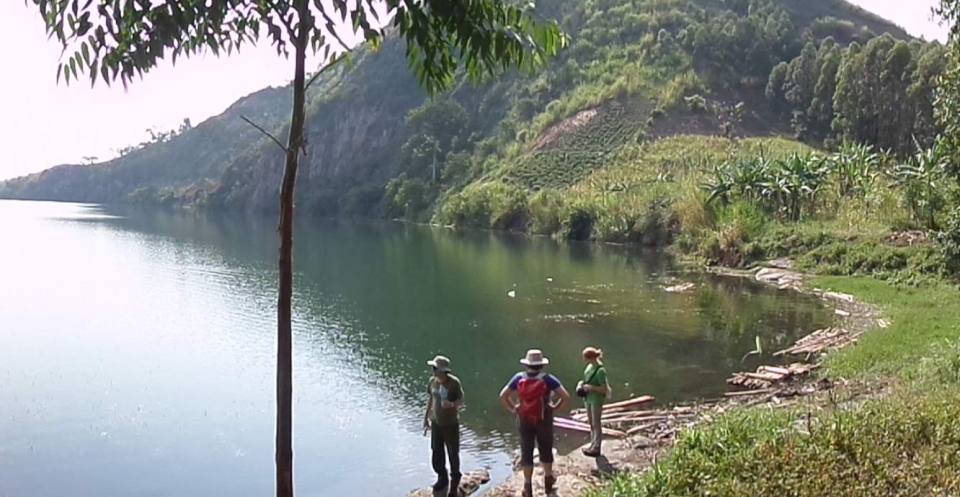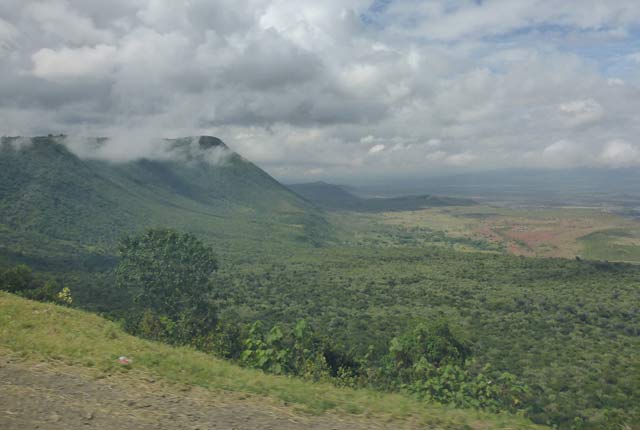Freshwater lake systems in Africa provide drinking water to some of Earth’s fastest growing and most vulnerable human populations. In response to climate change and anthropogenic pressure, such as land-use changes, aquaculture and eco-tourism, these lakes are under threat from changes in water balance and water quality. Changes in water quality negatively impact the health of the aquatic ecosystem and in turn have implications for human health, e.g. through the collapse of subsistence aquaculture and food supply, and harmful algal blooms.

BGS © UKRI.
There is an urgent need for regional climate information from the tropics to allow the downscaling of climate projections that will aid the setting of useful policy, management and adaptation targets. Knowledge of hydrological variability, and its associated temporal and spatial patterns, is essential for developing sustainable water resources and land-use management in this region and ensuring agricultural security.
Our research is producing new proxy time series for hydrological change in Uganda over the last 2000 years using lake isotope records (oxygen and carbonates), alongside changes in the lake ecology using analysis of diatoms (photosynthetic algae that form the base of aquatic food webs) . In addition, monitoring and hydrogeological data are being used to derive hydrological mass-balance models for the lake systems. These new data and modelling approaches will be used to quantify how anthropogenic activity affects local hydrological balance in recent decades, against a background of natural change, and the consequences of such impacts under future climate scenarios.
You may also be interested in

Integrated resource management in Eastern Africa
Our current activities build on the BGS’s extensive research experience in this region, contributing to welfare and future economic growth by the responsible use of natural resources.



